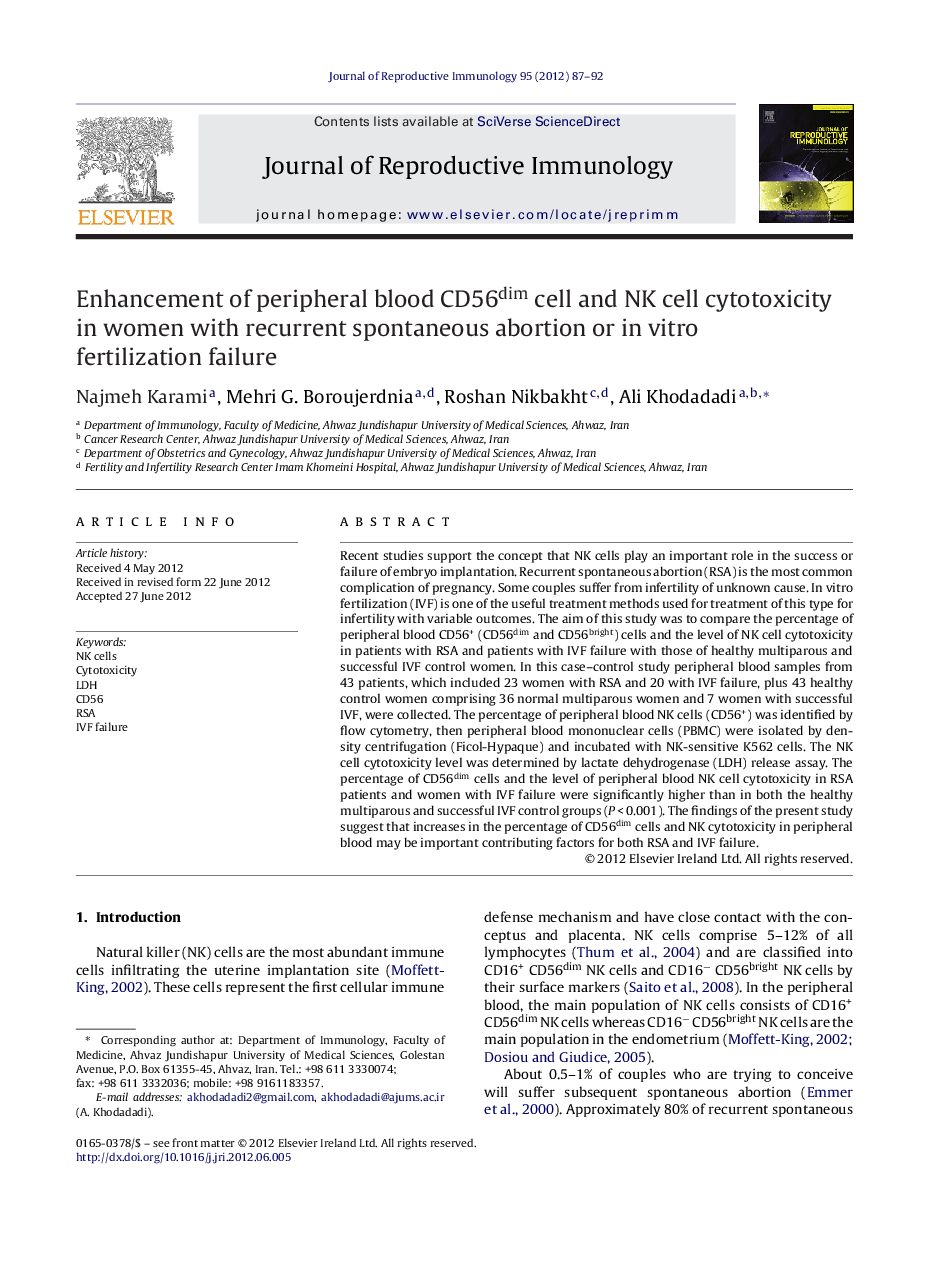| Article ID | Journal | Published Year | Pages | File Type |
|---|---|---|---|---|
| 3964398 | Journal of Reproductive Immunology | 2012 | 6 Pages |
Recent studies support the concept that NK cells play an important role in the success or failure of embryo implantation. Recurrent spontaneous abortion (RSA) is the most common complication of pregnancy. Some couples suffer from infertility of unknown cause. In vitro fertilization (IVF) is one of the useful treatment methods used for treatment of this type for infertility with variable outcomes. The aim of this study was to compare the percentage of peripheral blood CD56+ (CD56dim and CD56bright) cells and the level of NK cell cytotoxicity in patients with RSA and patients with IVF failure with those of healthy multiparous and successful IVF control women. In this case–control study peripheral blood samples from 43 patients, which included 23 women with RSA and 20 with IVF failure, plus 43 healthy control women comprising 36 normal multiparous women and 7 women with successful IVF, were collected. The percentage of peripheral blood NK cells (CD56+) was identified by flow cytometry, then peripheral blood mononuclear cells (PBMC) were isolated by density centrifugation (Ficol-Hypaque) and incubated with NK-sensitive K562 cells. The NK cell cytotoxicity level was determined by lactate dehydrogenase (LDH) release assay. The percentage of CD56dim cells and the level of peripheral blood NK cell cytotoxicity in RSA patients and women with IVF failure were significantly higher than in both the healthy multiparous and successful IVF control groups (P < 0.001). The findings of the present study suggest that increases in the percentage of CD56dim cells and NK cytotoxicity in peripheral blood may be important contributing factors for both RSA and IVF failure.
